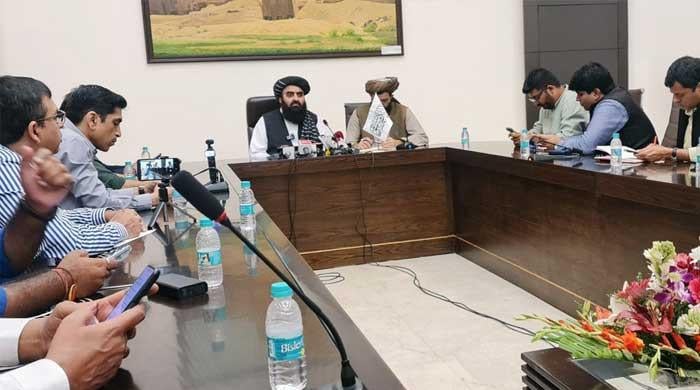
Controversy Surrounds Modi Government as Women Journalists Barred from Afghan Foreign Minister's Press Conference
In a recent incident that has sparked widespread criticism, the Indian government, led by Prime Minister Narendra Modi, has come under fire for its handling of a press conference held by Afghan Foreign Minister Amir Khan Muttaqi on October 10, 2025. The event, hosted at the Afghan embassy in New Delhi, has raised concerns over gender equality and media freedom, particularly regarding the exclusion of women journalists from attending the press briefing.
The Incident: Women Journalists Denied Access
Reports indicate that female journalists were barred from entering the press conference, a move that many view as a significant setback for women's rights and media representation in India. The decision has drawn sharp criticism from various quarters, including media organizations, women's rights advocates, and political commentators. This incident raises critical questions about the Indian government's stance on gender equality and its commitment to fostering an inclusive media environment.
The Political Context
The Modi government has often faced scrutiny for its approach to various social issues, including gender equality. The exclusion of women journalists from such a high-profile event not only undermines the principles of free speech and equal opportunity but also reflects broader societal challenges that women continue to face in India.
In recent years, India has made strides toward promoting gender equality, but instances like this highlight the persistent barriers that remain. Critics argue that the government must take decisive action to ensure that women are not sidelined in the media landscape, especially during significant events that concern international relations and diplomacy.
Reactions from the Media and Public
Following the incident, multiple media houses and journalists have voiced their outrage. The National Union of Journalists (NUJ) issued a statement condemning the exclusion of women from the press conference, calling it a "blatant disregard for media freedom and gender equality." The organization emphasized that all journalists, regardless of gender, should have equal access to information and opportunities.
Public sentiment has also been vocal, with many taking to social media to express their disappointment. Hashtags such as #WomenInMedia and #GenderEquality began trending, as individuals called for accountability and change. The incident has reignited discussions about the broader implications of gender discrimination in various facets of Indian society.
Implications for Gender Equality in India
The barring of women journalists from the press conference not only reflects an immediate issue but also highlights the ongoing struggle for gender equality in India. The media plays a crucial role in shaping public discourse, and when women are excluded from significant events, it perpetuates a cycle of underrepresentation and marginalization.
In a country where women have fought hard for their rights and representation, events like this serve as a stark reminder of the challenges that still lie ahead. Advocates for gender equality argue that the government must prioritize initiatives that promote inclusivity and ensure that women have equal opportunities in all sectors, including journalism.
The Role of Government in Promoting Inclusivity
As the custodians of democracy, governments have a crucial role to play in fostering an environment where all citizens can participate freely and equally. The Modi administration has the opportunity to lead by example, promoting policies that encourage women's participation in the media and other fields. This includes implementing training programs, mentorship opportunities, and policies that support women's advancement in journalism.
Moreover, the government must engage with media organizations to create guidelines that prevent gender discrimination in media coverage and access to events. By doing so, they can help cultivate a more equitable media landscape that reflects the diversity of the population.
Conclusion: A Call for Action
The incident involving the exclusion of women journalists from the Afghan Foreign Minister's press conference is more than just a moment of controversy; it is a reflection of the ongoing challenges women face in achieving equality in various sectors. As the nation moves forward, it is imperative for the Modi government to take a stand against gender discrimination and ensure that all journalists, regardless of gender, have equal access to opportunities.
The future of journalism and public discourse in India depends on the inclusion of diverse voices. By addressing these issues head-on, the government can help pave the way toward a more equitable society where women are empowered to contribute to conversations that shape the nation's future.
FAQs
Q1: Why were women journalists barred from the press conference?
A1: The specific reasons for the exclusion of women journalists from the press conference have not been publicly stated. However, the incident has drawn significant criticism for highlighting ongoing gender discrimination in media access.
Q2: What has been the response from media organizations?
A2: Media organizations, including the National Union of Journalists, have condemned the exclusion of women journalists, calling it a violation of media freedom and a setback for gender equality.
Q3: How does this incident reflect broader societal issues in India?
A3: This incident underscores the ongoing challenges women face in India regarding representation and equality. It highlights the need for systemic changes to promote inclusivity in various sectors, including media.
Q4: What steps can the government take to promote gender equality in journalism?
A4: The government can implement policies that support women's participation in media, create mentorship programs, and engage with media organizations to ensure equal access for all journalists, regardless of gender.
Q5: What are the implications of this incident for the future of journalism in India?
A5: The exclusion of women journalists can perpetuate underrepresentation and marginalization in media narratives. Addressing these issues is crucial for creating a more equitable and diverse media landscape in India.
Tags
World
